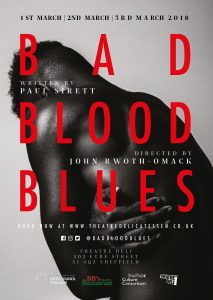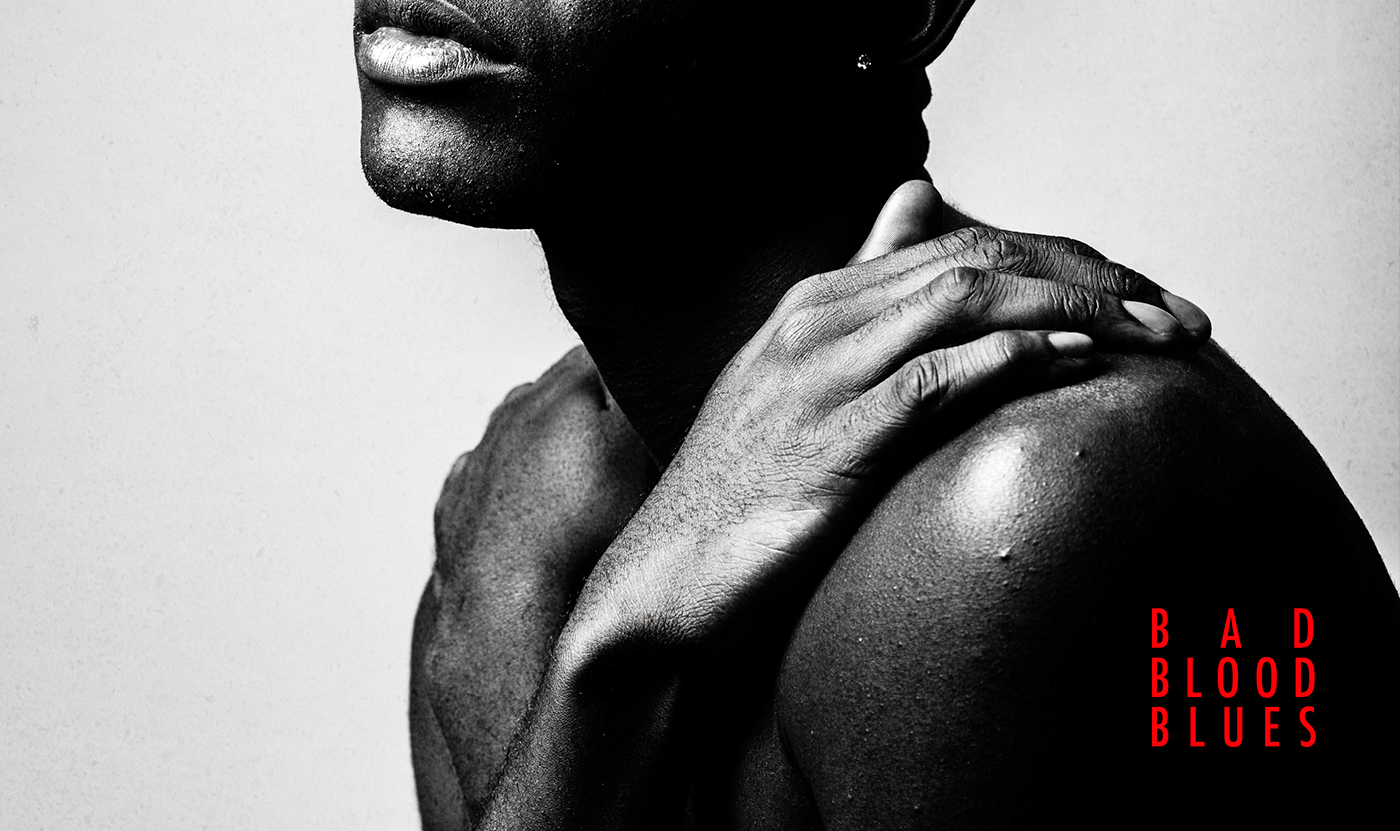 Paul Sirett’s Bad Blood Blues explores the ethics of HIV/AIDS drug trials in Africa. The play takes us through “an ethical and sexual maze”, explored through the narrative of its two main characters, Clare, a medical researcher, and Patrice, whose sister is taking part in one of Clare’s trials.
Paul Sirett’s Bad Blood Blues explores the ethics of HIV/AIDS drug trials in Africa. The play takes us through “an ethical and sexual maze”, explored through the narrative of its two main characters, Clare, a medical researcher, and Patrice, whose sister is taking part in one of Clare’s trials.
Often described as powerful and intense, Bad Blood Blues comes to Theatre Delicatessen in Sheffield on 1-3 March, under the direction of John Rwoth-Omack. We chatted to John about the production.
Why have you chosen to direct Bad Blood Blues?
As an artist, I believe I have the responsibility to represent the part of me that exists in society. Being black and African, I don’t feel we’re a very well represented group in theatre. The subject matter in this play is one that most black Africans will be familiar with, and so it is important for me to not only make a show which reflects the experiences of that community, but a play that delves deep into the question of race and how as a society we perpetuate the tensions that divide us.

Given the play was written almost ten years ago, did you feel it needed updating, either in theme or content?
Although the play was originally written in 2009, it’s actually set in 1997 and 2001. During the 90s, unethical medical research in Sub-Saharan African was at its highest. For me, setting it as it is written highlights the fact that this problem has existed for a long time. It existed then and it’s very much present today – the hope is that it’s not relevant tomorrow.
The use of a live blues musician is an interesting one. Has that given you the ability to add another ‘layer’ to the narrative?
Having a blues musician score the play is a unique device rarely seen in theatre. In this case, he is from around the early 1900s, when black people in America were still living in slave-like conditions, and he is almost an emblem for exploitation.
The blues as a movement has also been subject to mutilation by record labels and has filled the pockets of the fat cats of the Western world, and so acts as an interesting parallel with the ethics of the pharmaceutical industry.
We are very excited to be working with talented musician Rob Green to act as this spiritual guide for the audience, setting the tone with a slightly modern twist of jazz and blues. I just love the sound of jazz and blues mixed together and for me it gives a heavier gravitas to the play.
 You’re doing a Q&A after the performance. Is this something you’ve done before? It seems like a very deep topic, with some really fundamental questions about science, ethics and humanity, which are only going to get more relevant as technology continues to progress.
You’re doing a Q&A after the performance. Is this something you’ve done before? It seems like a very deep topic, with some really fundamental questions about science, ethics and humanity, which are only going to get more relevant as technology continues to progress.
I think it would feel strange to not have a Q&A for something like this. Without ruining anything, the play ends with us asking more questions rather than answering them, which I feel is part of its strength. It’s not preachy and leaves the subject matter up for debate, lending itself to having a panel, hopefully made up of a medical researcher, someone from big pharma (although we’re not holding our breath), and writer Paul Sirett himself.
Technology definitely has a big part to play in our future as a species. The more we improve and value technology, the less we seem to value human beings, even more so when they’ve come from poverty. It will be very interesting to see how the panel engage with the play’s central ideas and whether we are beyond the point of no return.
Bad Blood Blues comes to Theatre Delicatessen on 1-3 March 2018. Tickets are available via Eventbrite.
Words: Sam Walby
